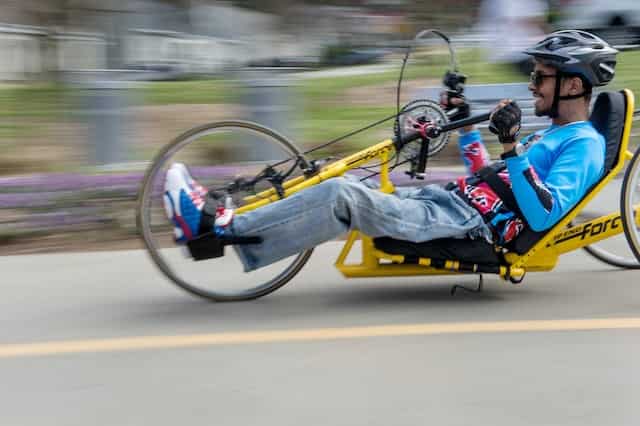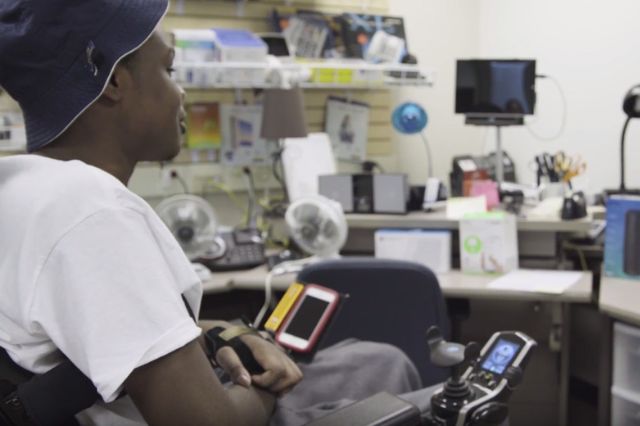Pre-Doctoral Externship: Neuropsychology Post-Acute Brain Injury
Now accepting applications for Summer/Fall 2025-2026
Externship Overview
This is an advanced diagnostic practicum involving neuropsychological assessment of individuals with brain injuries. Students will also be expected to conduct psychotherapy with a few clients. An advanced student is generally defined as a fourth-year student (applying in the spring of the third year) and beyond who has completed assessment curricula and at least one other external neuropsychology practicum.
Externship Location
Shepherd Pathways
1942 Clairmont Road
Decatur, GA 30033
Length of Training
August 2025 - August 2026 - 2 days per week
- The length of training can be flexible depending on the program and practicum agreement.
- Tuesdays and Wednesdays are strongly preferred.
- Group supervision occurs on Thursday afternoons and is mandatory for all trainees and staff. The inability to attend group supervision because of other obligations/conflicts is an exclusion criterion for consideration.
Externship Supervisors and Faculty
All students are assigned a primary supervisor. Each week, the student will receive at least one hour of individual supervision in addition to one hour of group supervision obtained through clinical and didactic activities. Additional informal supervision regularly occurs as the student manages the demands of clinical services. Styles and modes of supervision vary according to the supervisor. Students may also receive tiered supervision with neuropsychology postdoctoral fellows. Students receive feedback on case presentations, performance in team meetings and seminars, consultative/supervisory work, writing skills, and overall professional conduct. Future career planning and interviewing skills are also addressed during supervisory sessions.
Externship supervisors and faculty include:
- Taylor Liberta, Ph.D., Clinical Neuropsychologist and Primary Supervisor
- Kristian Nitsch, Ph.D., Neuropsychology Supervisor
Agency Involvement
The primary clinical population includes individuals with traumatic brain injury (TBI) and non-traumatic brain injury. The most common precipitating factors leading to TBI cases seen in this facility include motor vehicle accidents, falls, gunshot wounds to the head, and assault. The most common precipitating factors leading to non-TBI cases seen in this facility include aneurysm, stroke, anoxia, brain tumor, and hydrocephalus. Shepherd Pathways is a multifaceted facility that houses residential, day treatment, and outpatient programs.
We operate from a flexible neuropsychological test battery approach. In most cases, batteries are comprehensive, although in select cases (or for capacity evaluations), a neurocognitive screen (versus full battery) can be administered.
A typical full battery would be comprised of selections from the following tests: WASI-II, TOPF, WAIS-IV, BNT or NAB, MAE Token Test, WMS-IV Logical Memory and Visual Reproduction, BVMT-R, WMS-III Spatial Span, CVLT-3, BCT or SCT, D-KEFS Trails and Verbal Fluency, Symbol Digit Modalities (written and/or oral versions), Grooved Pegboard Test, Beck Depression Inventory-II, the TOMM, and MSVT. Given the flexible battery approach, some tests may be added, substituted andor removed depending on the examinee and referral question(s).
Student Involvement
This is typically a two-day practicum placement. Students are trained in assessment, intervention, and consultation. Training in assessment emphasizes both neurobehavioral examinations and neuropsychological evaluations. Emphasis is placed on effective determination of history, selection of tests, administration and scoring of tests, interpretation of results, and communication of findings in oral and written formats. Students examine persons with acute neurologic disorders as well as persons presenting with chronic residual deficits of neurologic disorders. Supervision emphasizes integrated conceptualization of neuropsychological instruments, data, functional abilities, and biopsychosocial history.
Students will gain experience in consultation with medical staff, healthcare teams, families, administrative systems, and persons with neurologic disorders. Students are involved in clinical consultation with physicians and healthcare teams in formal settings, such as medical rounds and team conferences. Students also regularly provide consultative education to patients and families, as well as case managers and health care administrators.
Intervention typically consists of short-term therapy, often related to adjustment to injury. Students learn to apply Cognitive Behavior Therapy (CBT), Acceptance and Commitment Therapy (ACT), and Motivational Interviewing (MI) approaches with clients. Students may also develop behavior management plans for clients and teams experiencing behavioral dysregulation that interferes with treatment.
Application Process
Interested students should apply by January 5, 2025, for late summer/fall placement.
Please submit a curriculum vitae and a brief cover letter stating your interest in this practicum and how it will meet your training needs to Dr. Taylor Liberta at Taylor.Liberta@shepherd.org. Students are encouraged to reach out to Dr. Liberta with any questions at the email above or by phone at 404-603-1427.
Interviews will take place from the end of January through February. Students who are selected for interviews will be contacted by their preferred method of communication (e-mail or phone). Candidates will be invited either for onsite or video-conference interviews with staff members. Students will be informed if they will be offered a practicum by the end of February.





